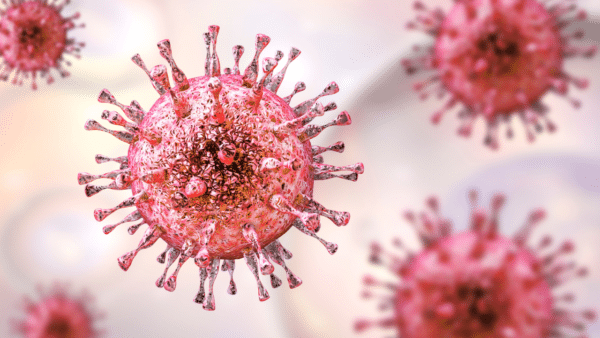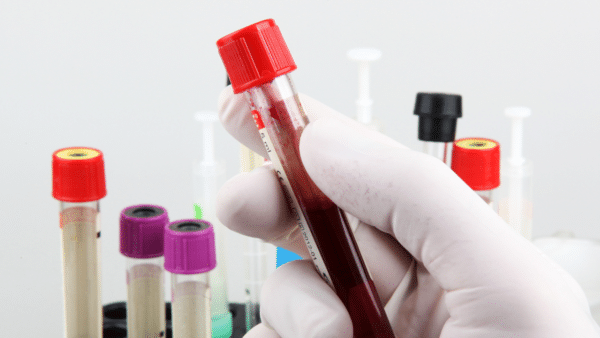Are you or someone you care about experiencing health issues that could potentially be caused by the Human Herpesvirus? Did you know that a test available can provide detailed diagnostic information about HHV-6 infection called the Human Herpesvirus 6 (HHV-6) DNA PCR Blood Test? This virus can lead to conditions like roseola in infants and even more serious illnesses in adults and people with weakened immune systems. To make informed decisions about your health or the health of a loved one, it’s crucial to have a comprehensive understanding of this test and its potential implications. Armed with this knowledge, you’ll be better equipped to take the necessary measures to maintain good health and prevent severe health problems.

What is Human Herpesvirus 6?
Human Herpesvirus 6 (HHV-6) is a common virus classified into two distinct variants: HHV-6A and HHV-6B. The latter is predominantly associated with the childhood illness roseola, characterized by sudden high fever and a skin rash. It’s possible for both types to lay low in our bodies and then come back to life later, especially in people who have weaker immune systems. This can cause health issues.

Indications for the HHV-6 DNA PCR Blood Test
The HHV-6 DNA PCR Blood Test is a critical diagnostic tool used to detect active or latent infection of the virus. This test is particularly vital in several clinical scenarios:
- Diagnosis of Active HHV-6 Infection: Essential for patients showing symptoms suggestive of HHV-6 but lacking definitive clinical diagnosis.
- Monitoring in Transplant Patients: To detect reactivation in transplant recipients, aiding in timely therapeutic interventions.
- Evaluation of Febrile Illnesses in Infants: Particularly in cases of suspected roseola, where a specific diagnosis can guide management decisions.
- Assessment in Cases of Encephalitis or Myocarditis: To identify HHV-6 as a causative factor in inflammatory conditions of the brain and heart.

The HHV-6 DNA PCR Blood Test Procedure
The procedure for conducting the HHV-6 DNA PCR Blood Test involves several steps to ensure accuracy and reliability of results:
- Sample Collection: The patient’s arm is usually used to draw a blood sample. The sample is taken from a vein.
- DNA Extraction: Viral DNA is extracted from the blood sample using specialized laboratory techniques.
- PCR Amplification: The extracted DNA is then subjected to Polymerase Chain Reaction (PCR) to amplify the HHV-6 DNA present in the sample.
- Data Analysis: The amplified DNA is analyzed using specific probes and primers for HHV-6 to confirm the presence and quantify the viral load.
Types of HHV Blood Tests
| Name of the Test | Description of the Test |
|---|---|
| Human Herpesvirus 6 (HHV-6), DNA PCR Test | Helps confirm the diagnosis of an HHV-6 infection. |
| Human Herpesvirus 6 (HHV-6) Blood Test, IgM | Detects IgM antibodies to HHV-6 in the blood, indicating a recent or acute infection. |
| Human Herpesvirus 6 (HHV-6) Antibodies Blood Test, IgG | Measures IgG antibodies against HHV-6, indicating a past or chronic infection. |
Interpreting the Results of the HHV-6 DNA PCR Blood Test
The interpretation of the HHV-6 DNA PCR Blood Test results can provide essential insights into the patient’s health status:
- Positive Result: Indicates an active or latent infection of HHV-6. Further analysis might be required to determine the viral load and clinical significance.
- Negative Result: Suggest the absence of an active HHV-6 infection during testing.

Why Early Diagnosis of Human Herpesviruses Important
Early diagnosis of HHV-6 infection is crucial in preventing potential complications, particularly in vulnerable populations such as infants and immunocompromised individuals. Appropriate management strategies can include antiviral therapy, monitoring of immune function, and supportive care tailored to the patient’s specific clinical needs.

Conclusion
If you’re experiencing symptoms that suggest a possible HHV-6 infection, it’s important to get the right diagnosis in order to receive the best possible treatment. The Human Herpesvirus PCR Blood Test is an effective way to help healthcare providers determine the presence and extent of the infection and to develop targeted treatment strategies that can improve your chances of a successful recovery. By understanding how this test works and what it can tell you about your health, you can take a more active role in managing your overall well-being. So if you’re concerned about your health and think you may have been exposed to HHV-6, talk to your healthcare provider about whether the PCR Blood Test is right for you.
In our commitment to advancing healthcare diagnostics, we continually strive to provide comprehensive, accurate, and timely diagnostic services that contribute to the effective management and treatment of HHV-6 and other viral infections.